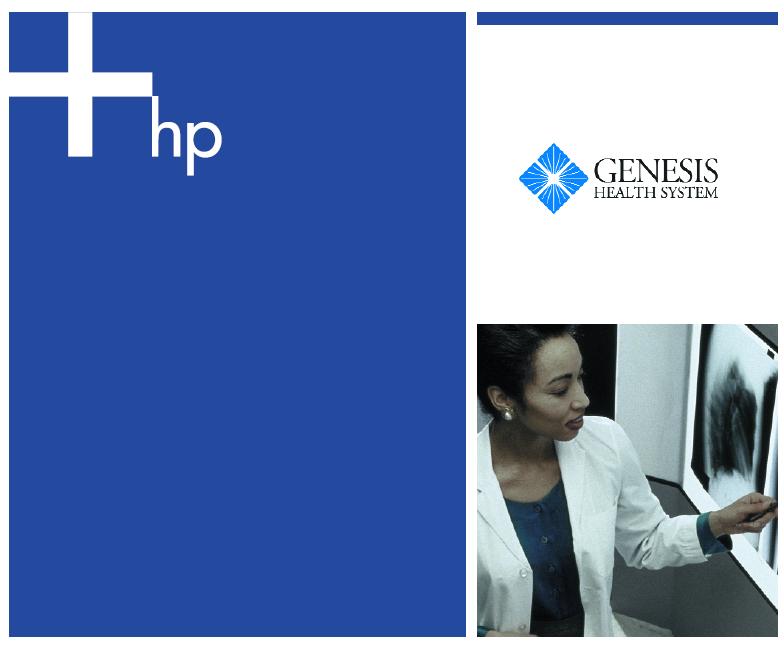“HP’s single vendor strategy makes a very
difficult job simpler. The fewer contacts we
have to make to support our data center and
applications the better. That’s why 98% of
our servers are from HP.” — Dean Hiles,
Director of Information Technology,
Genesis Health System
Success story:
HP technology helps Genesis Health System achieve its
mission of providing compassionate, quality care








